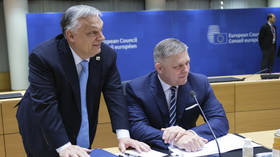Global debt markets see Russian return with Eurobond issue
This week will see Finance Minister, Aleksey Kudrin, persuading investors of Russia’s merits as he announces an $18 billion Eurobond issue.
It’s the first time Russia has tapped the bond market in more than a decade, and not everyone is convinced there is a need this time around either. Aleksey Moiseev, Head of Fixed Income Research at Renaissance Capital, says Russia has more than enough resources of its own to bridge its deficit, and by borrowing money at home would develop Russia’s nascent bond market.
“If the Russian government was to replace international borrowing with domestic, this would’ve achieved not only result of raising money for the budget deficit, but also result of increasing and significantly developing domestic interest rate market and domestic fixed income market and also without creating unnecessary currency risk for the government.”
The European Bank of Reconstruction and Development echoed those sentiments this week by saying Russia should reduce its reliance on foreign borrowings. However it said it was a question of balance and Russia shouldn’t reject all foreign funding. For Yulia Tseplyaeva Chief Economist at Merrill Lynch, Russia and CIS, it’s more a matter of what’s necessary.
“Russia will find a balance between foreign borrowing and use of its reserve fund. Given the high budget deficit, Russia will have to rely on foreign debt and attract significant amounts of money. We estimate the borrowings to stand at $20-25 billion a year in the period of 2010-2020. But it will depend on the global economy. If oil prices reach $100 per barrel, Russia won’t have to borrow massively.”
The bond issue will be a key test of foreign investor appetite for Russia. Traders believe this debut will be a success, however, if the government wants to borrow more it’s likely to face a much tougher time getting the issue away.













